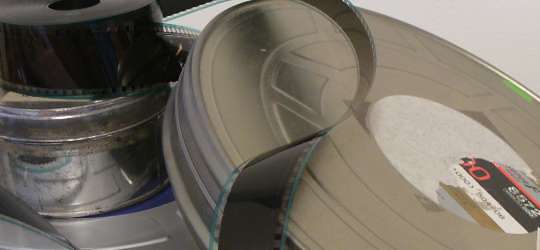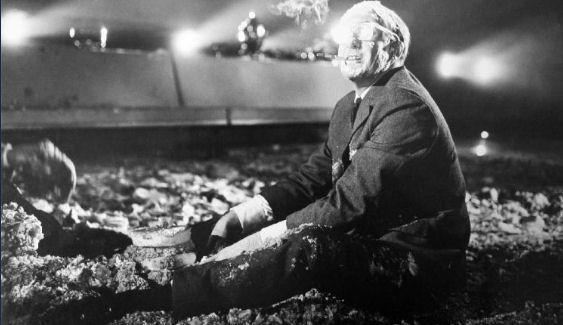
Life can often imitate art, but sometimes in the case of tragedies, that imitation can hit uncomfortably close to home. In those rare instances when real life events parallel too closely to an upcoming movie, Hollywood has taken it upon themselves to widen that gap by taking measures to remove material that may have now, through no fault of their own, become uncomfortable. (Whether this is done out of sympathy and respect for the victims or to protect their potential box office receipts is probably determined by one’s personal level of cynicism.)
Sometimes the response is a relatively minor one as seen last month when Paramount Pictures recut television advertising for the Tom Cruise action flick Jack Reacher to remove any gunplay following the tragic elementary school shootings in Newtown, Conn. Other times, the changes are more extensive, as witnessed by Gangster Squad, which had its opening delayed until this Friday in order to substitute a new scene in for a sequence depicting a shootout in a movie theater following this summer’s tragic theater shootings in Aurora, Colorado.
Here are some other examples of how other filmmakers have responded to tragedies and how other films have been altered –
DR. STRANGELOVE Loses Part Of Its Ending
There are two instances of editing done to Stanley Kubrick’s Cold War satirical masterpiece Dr. Strangelove Or: How I Learned To Stop Worrying And Love The Bomb, one of which can be directly attributed to the assassination of President John Fitzgerald Kennedy in Dallas on November 22, 1963. The unfortunate coincidence of a line from Slim Pickens — “a fella could have a pretty good weekend in Dallas with all that stuff” — was quickly relooped to change “Dallas” to “Vegas.” (The original reference to Dallas can still be seen in the French-subtitled version of the film.)
The reasons behind the second edit are a bit more controversial. For the film’s climax, Kubrick and co-screenwriter Terry Southern had envisioned a big pie fight erupting in the War Room with the resultant mess covering everyone to symbolize the futility of nuclear war where there are no winners. Some have stated that the scene was cut because the actors were having too much fun and could be seen smiling and laughing when they shouldn’t have been. In later interviews, Kubrick would state he cut the sequence because it turned out to be tonally different from what he was trying to achieve with the rest of the film. However, some have looked to a line in that scene as to why it may have been cut. As President Merkin Muffley (Peter Sellers in one of his many roles in the film) gets hit in the face with one of the flying pies, General Buck Turgidson (George C. Scott) cries out “Gentlemen! Our gallant young president has been struck down in his prime!” Kubrick’s editor Anthony Harvey stated that it was because of that line that the scene was removed on orders from Columbia Pictures. Believe whom you wish.
THE PROGRAM Loses Scene After Imitations Lead To Death
Mostly forgotten today, the 1993 Touchstone college football drama The Program seemed to have a lot going for it with a couple of young, up-and-coming stars like Halle Berry and Omar Epps appearing opposite a seasoned vet like James Caan. Unfortunately, it had one scene which lead to at least one death among impressionable moviegoers who later tried to imitate it.
At one point in the film, Heisman Trophy candidate Joe Kane (Craig Sheffer) boasts about how cool he is under pressure and to prove it to his teammates he lays down on the yellow line of a street, cars whizzing by his head. Not to be outdone, his teammates join him.
The fact that the scene was shot in safety with stunt performers and optical effects to enhance the illusion of what was happening seemed to escape at least a few people who thought that they could replicate it in the real world. The unfortunate consequences of those attempts left at least two men dead and another two injured in separate incidences. In response, Touchstone ordered that the scene be cut from the film and projectionists around the country went to work with their scissors. To date, the scene has not been part of any legitimate home video release with the exception of a Hong Kong laser disc release. You can see the scene for yourself below.
9/11 Leads To A Debate Over Leaving The Twin Towers In Films
No one event has ever affected more films and lead to more debate than the terrorist attacks on New York City on September 11, 2001 that resulted in the destruction of the World Trade Center. With a number of upcoming Manhattan-set films, a debate sprang up as to what was the best way to deal with the sudden hole in the city’s skyline and devastating loss of life.
A number of films, including the Arnold Schwarzenegger action film Collateral Damage, the action comedy Big Trouble and the stewardess comedy View From The Top, were delayed. Men In Black II totally reshot its ending to replace the original set at the World Trade Center.
Some filmmakers choose to digitally remove the World Trade Center like Ben Stiller’s Zoolander and Sam Raimi’s Spider-Man. A teaser for Spider-Man, due out the following summer, featuring the World Trade Center in its finale was quickly taken out of circulation and has never been part of any DVD or blu-ray release. The image of the World Trade Center reflected in the eyepieces of Spider-Man‘s costume on the film’s poster also lead them to be replaced.
Other filmmakers, including Cameron Crowe (Vanilla Sky) and Martin Scorsese (Gangs Of New York) decided to leave the Twin Towers in their films as a symbol of pride and respect.
Who had the right response? I’m not sure that there is a correct answer. Each filmmaker had their own individual reasons for doing what they did and the best we can say is that they all followed their conscious.
Jackie Chan’s NOSEBLEED Cancelled Following 9/11
Sometimes, films that were not yet in production get altered in response to a tragedy, but in at least one case a film never got into production. The project in question was called Nosebleed, an action film starring legendary Hong Kong actor Jackie Chan as a World Trade Center window washer who learns of a terrorist plot to destroy the Statue of Liberty.
It was a project that Chan was trying to get going since at least 1999. For a while New Line (producers of the Rush Hour films that paired Chan with Chris Tucker) was looking as if they were going to produce it but then the project migrated over to MGM in May 2001.
At the time of the terrorist attack on the World Trade Center, rumors were circulating that Chan was scheduled to be filming in New York at the World Trade Center on the morning of September 11 except for a late script holding up production at the last minute. The truth of the matter is that Chan was actually in Toronto as filming on The Tuxedo had begun the day before and had been scheduled to begin on that date for a number of months, so no last minute change of plans are to be credited with him escaping horrific events of that day. In the aftermath of 9/11, MGM quietly cancelled the film.
BRUNO Edits Michael Jackson Joke Hours Before Premier
Most times studios have weeks or months to respond to a tragedy and make changes to their films, but Sacha Baron Cohen found himself with just hours to respond. Cohen had already had a hit with Borat: Cultural Learnings Of America For Make Benefit Glorious Nation Of Kazakhstan in which he accosted real people with his obtuse eastern European journalist character. Borat found him doing the same but this time with a flamboyantly gay character. One unsuspecting person that Cohen’s Bruno interacted with was singer LaToya Jackson, of the musical Jackson clan. And since her brother Michael had been a steady fixture of tabloid journalism for several years, he was fodder for some of the jokes, with the Bruno character looking through Jackson’s cell phone for her brother’s number.
Unfortunately, through a terrible coincidence, Jackson was found dead the morning of June 25, 2009, the date of the film’s scheduled Hollywood premier. A quick edit happened just hours before the premier removed the references to Michael, though they left the remainder of the scene with LaToya. The scene remained altered through the film’s theatrical and home video release, although it is available as a deleted scene on the DVD and blu-release.
NEIGHBORHOOD WATCH Retitled After Treyvon Martin Case
 Sometimes, studios will react to a situation that only has the minimum of connection to their film. Case in point, last summer’s fatal shooting of unarmed Florida teenager named Treyvon Martin by a member of a local neighborhood watch which launched heated discussions about race, gun control and that state’s controversial Stand Your Ground law. Although their comedy about aliens hiding in suburbia who are discovered by the bumbling likes of Ben Stiller, Vince Vaughn and Jonah Hill bared little resemblance to the tragic events of the shooting, just the fact that the shooter was part of a neighborhood watch group was enough to spur Warner Brothers to change the name of the film to simply The Watch. Additionally, the studio pulled back much of its advertising in the weeks before the film’s release, which may have been a contributing factor that the film only managed to pull $67.9 million at the worldwide box office, not a great figure when compared against its $68 million budget.
Sometimes, studios will react to a situation that only has the minimum of connection to their film. Case in point, last summer’s fatal shooting of unarmed Florida teenager named Treyvon Martin by a member of a local neighborhood watch which launched heated discussions about race, gun control and that state’s controversial Stand Your Ground law. Although their comedy about aliens hiding in suburbia who are discovered by the bumbling likes of Ben Stiller, Vince Vaughn and Jonah Hill bared little resemblance to the tragic events of the shooting, just the fact that the shooter was part of a neighborhood watch group was enough to spur Warner Brothers to change the name of the film to simply The Watch. Additionally, the studio pulled back much of its advertising in the weeks before the film’s release, which may have been a contributing factor that the film only managed to pull $67.9 million at the worldwide box office, not a great figure when compared against its $68 million budget.





Fix the date of JFK’s death…
And that’s why we shouldn’t proofread at 1:30 am…